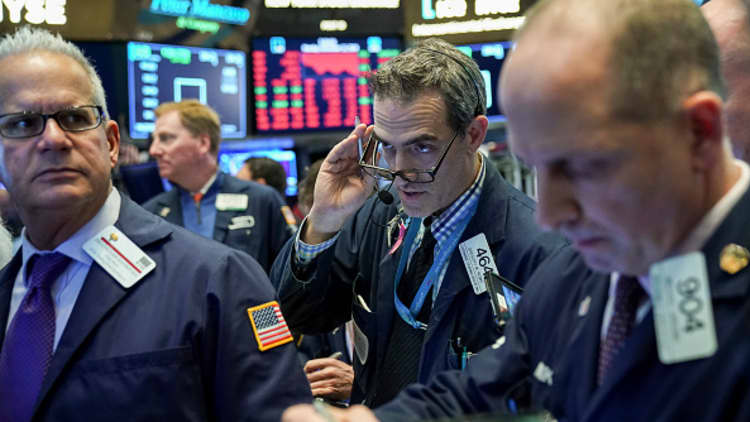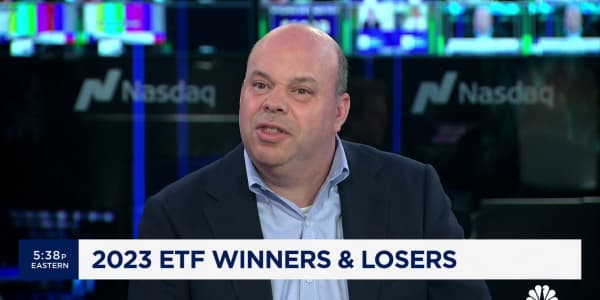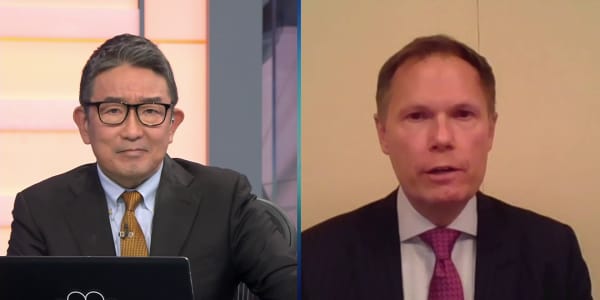
As stock market volatility in the United States has increased in the fourth quarter, some Wall Street firms and investors are betting that overseas stocks offer better value. The Vanguard Group says that better value equation shouldn't be measured in a trader's days, or months, but over a full decade.
The index fund giant expects international stocks to outperform U.S. stocks over the next 10 years by a margin of 3 percent to 3.5 percent. That could be a problem for many U.S. investors, Vanguard says, as they may be holding too many U.S. stocks already — without realizing it — and need to make asset-allocation changes.
"We expect lower returns in the next several years," Greg Davis, Vanguard's chief investment officer told CNBC on Tuesday. Specifically, Vanguard expects a 4 percent annualized return for the U.S. stock market over the next decade, versus 7 percent to 7.5 percent for international equities. "It's a big delta between those two," Davis said.
The expected performance gap is being driven by two factors: equity market valuations in the United States being elevated, and the U.S. economy being much further along in terms of its monetary tightening.
Vanguard's primary concern is that many U.S. investors have built too large an overweight to U.S. stocks. Over the past five years, the U.S. stock market has returned over 10 percent a year on an annualized basis while international stocks have returns about 2 percent. The traditional 60/40 portfolio — 60 percent U.S. stocks and 40 percent U.S. bonds — would now be as high as 70/30 given the 10.8 percent annualized return on equities and 1.8 percent return on bonds.
"It's really a math equation," said Vanguard CEO Tim Buckley in a CNBC interview later on Tuesday. "When you start off with higher valuations you are just going to get lower returns going forward. ... Markets have come down a bit ... We were at frothy valuations to now simply high valuations."
Vanguard does not expect the U.S. economy to go over a cliff any time soon, but it does expect earnings growth to slow over the next 12 months, and in the short-term, for the recent bout of market volatility to continue, or even accelerate. A deal between the U.S. and China could change that outlook.
Amid concerns about peak earnings that contributed to the recent selloff, Davis said that earnings growth should remain strong over the next year, but after that the benefits of the tax cuts will start to diminish and the U.S. economy will see "standard economic growth" — closer to 2 percent GDP growth — and that will be the primary driver of stock earnings. "So it is going to slow down," he said.
Buckley said the only way to predict a pace of U.S. stock growth that matches that of recent years is "to imagine serious economic growth and companies that can do extremely well," but the fiscal stimulus already enacted makes that a hard argument to support. The trade war could settle down and productivity could outperform all expectations, but it would take a hard-to-see combination of events for returns to match the 10 percent annualized rate of recent years. The Vanguard CEO said investors should expect a balanced portfolio to return 5 percent in the coming years.
"If we get a trade deal, we will see a dark cloud lifted," Davis said. "Uncertainty over trade tensions has had an impact on widening credit spreads and has been a depressing factor for equities."
Vanguard does expect the Fed to continue to raise rates toward 3 percent with a strong labor market and a 30-year low in unemployment. "We think the Fed still has ammunition unless something else breaks in the economy," and the central bank will "gradually continue to tighten," the Vanguard CIO said.
There could even be stronger-than-expected tightening by the Fed if the U.S. unemployment rate drops closer to 3 percent from its current 3.7 percent level. Vanguard currently projects the Fed will do one more hike in December and two in 2019 due to the data on core inflation and labor market tightness.
But Vanguard does not see the likelihood of a recession in 2019, though that risk will increase in early 2020 if the Fed continues to be more restrictive in its policy.
Most popular ETFs over past month
| ETF | 1-month flows | Q4 flows | YTD flows |
|---|---|---|---|
| iShares Core Emerging Markets | $2.2 billion | $2.2 billion | $13.2 billion |
| iShares Core S&P 500 | $1.9 billion | $6.2 billion | $16.7 billion |
| iShares Russell 1000 Value | $1.3 billion | $1.9 billion | (-$2.5 billion) |
| iShares Edge MSCI Min Vol | $1.3 billion | $1.8 billion | $2.4 billion |
| Vanguard S&P 500 | $1.2 billion | $2.9 billion | $15.7 billion |
| Vanguard FTSE Developed Markets | $1.1 billion | $1.9 billion | $7.4 billion |
Source: XTF.com, data as of 11/26/ 2018
This story has been updated with comments from Vanguard CEO Tim Buckley.





